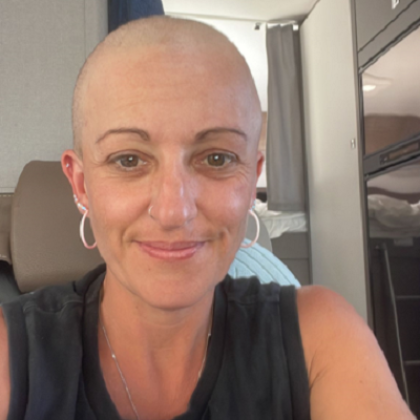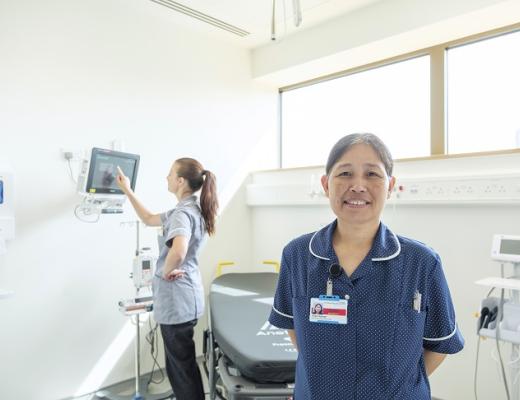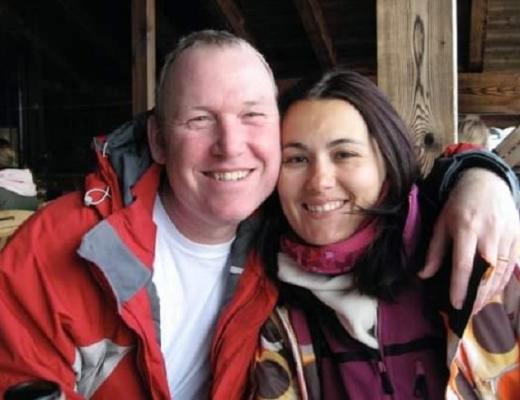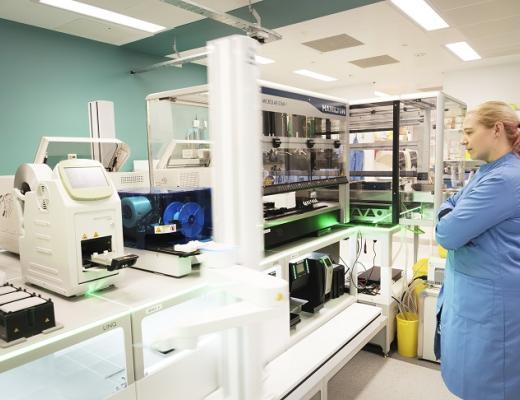‘Olive oil’ drug shows early promise in treating people with aggressive brain cancer
A unique drug derived from olive oil has shown promise in treating some patients with an advanced form of the most common type of brain cancer.
Results from a study led by The Royal Marsden and the Institute of Cancer Research suggest the drug – 2-OHOA – could be particularly effective for patients with glioblastoma, an aggressive form of brain cancer which affects 3,200 people in the UK each year.
2-OHOA blocks cancer cell growth
2-OHOA is a synthetic lipid derived from oleic acid, which is found in animal and vegetable fats such as olive oil. Lipids play an important role in the structure of cell membranes, the exterior layer of a cell which helps to regulate its growth.
The 2-OHOA drug works by restructuring the abnormal membranes of cancer cells and blocking the abnormal growth signals that drive the disease. The early phase study involved 54 patients with recurrent glioblastoma and other advanced solid tumours. Of the 21 patients with glioblastoma who were treated, around a quarter (24%) responded to the drug and one patient experienced an exceptional response, which lasted for more than three years.
The study was carried out in the Oak Foundation Drug Development Unit which, thanks to support from The Royal Marsden Cancer Charity, has been supporting early-phase trials since 2005.
A new treatment for glioblastoma – a difficult to treat cancer
Dr Juanita Lopez, Consultant Medical Oncologist at The Royal Marsden who led the study, said: “Glioblastoma is an incredibly difficult disease to treat and patients with advanced disease have very poor outcomes, often living for just a year after their diagnosis.

“There hasn’t been an effective new treatment for this patient group in nearly two decades, so drug development urgently needs to be accelerated. We’re very much looking forward to results from ongoing trials and hope this treatment eventually becomes widely available.”
The drug is now being trialled in a global randomised study focused on newly diagnosed glioblastoma patients, which is recruiting patients at The Royal Marsden.
“This trial has given me hope”
When Michele, 42, was diagnosed with glioblastoma in March 2023, she quickly reorganised her wedding and got married a week before undergoing brain surgery. “I was meant to be getting married in July 2023,” Michele says. “But when we found out about the brain tumour, we wanted to do it straight away. Thanks to our incredible friends and family, me and my husband somehow pulled off a wedding in two weeks.”

“After the wedding, the first thing we did as a married couple was attend another appointment where we were told that the tumour was grade four and incurable. Our entire world came crashing down.”
Michele was referred to The Royal Marsden where, along with radiotherapy and chemotherapy treatments, she joined the trial for 2-OHOA.

“I recovered well from surgery and, when I was told about the trial, I thought, why not? There’s nothing to lose,” says Michele. “The drug comes in a sachet and I take it with water three times a day. I experience some side effects, but I can still do things I love. For example, I spent the summer traveling across Europe with my husband and 11-year-old daughter in a motorhome.”
Michele recently had her sixth stable scan in a row. “The Royal Marsden is the most incredible hospital I’ve ever been to,” she says. “It was amazing they offered me the chance to join this trial, which has given me hope.”
The phase 1/2 study was funded by Laminar Pharmaceuticals and carried out in the Oak Foundation Drug Development Unit at The Royal Marsden and The Institute of Cancer Research (ICR), which was funded by The Royal Marsden Cancer Charity. It is supported by Cancer Research UK, the Experimental Cancer Medicine Centre Network and the National Institute for Health and Care Research (NIHR).
Help us continue to support innovative research
The 2-OHOA study was carried out in the Oak Foundation Drug Development Unit which, thanks to funding from The Royal Marsden Cancer Charity, has been supporting early-phase trials since 2005.
With your help, we can continue to support trials that will help transform treatment and care for people now and long into the future.
Discover more about ways you can support us.
Read more stories on our blog.


